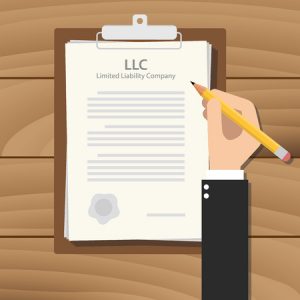Explaining limited liability and dormant companies
Limited Liability

You can set up a limited liability company to run your business. It means the company is responsible in its own right for everything it does. Most importantly its finances are separate to your personal finances, meaning you are not personally liable for any financial losses made by your limited company. In other words, you will not lose your personal possessions (car, home, etc) held outside of the business.
To ensure your business associates are not at risk through their interactions with your business (like your creditors who provide goods on account to the business, or your landlord who sign leases), the company must file accounts and certain information about shareholdings annually. This way, the business associates can see (via the Annual Return) who is supporting and running the business, and use the information to make decisions.
A fuller set of accounts, known as ‘statutory accounts’ must be provided to Shareholders and anyone entitled to attend your company’s AGM and to HM Revenue and Customs (HMRC) as part of your Company Tax Return. These will normally consist of a Profit and Loss Account for the trading period in question, a Balance Sheet dated on the last day of the Accounting period, and a brief statement by the Directors on the company’s performance.
Dormant
Your company is called ‘dormant’ by Companies House if it has no ‘significant’ transactions in the financial year that you’d normally report. According to HMRC, your company is usually dormant for Corporate Tax if it meets the criteria as stated on this gov.uk page.
It is important to note that you will still need to file a Company Tax Return annually even if your company is dormant.
Dormant companies that qualify as ‘small’ only need to send Companies House abbreviated accounts and don’t need to be audited. They may also be ‘dormant’ for Corporation Tax purposes.
Your company will be ‘small’ if it has any 2 of the following:
- A turnover of £6.5 million or less
- £3.26 million or less on its balance sheet
- 50 employees or less
If your company is small, you can send abbreviated accounts to Companies House. Abbreviated accounts are made up of the balance sheet from your company’s statutory accounts, along with any notes. The balance sheet must have the name of a director printed on it and must be signed by a director (this is the norm for all filed sets of accounts).
Sending abbreviated accounts means less information about your company will be publicly available.
If your company is small, you can also:
- Use the exemption so your company’s accounts don’t need to be audited.
- Choose whether to send a copy of the director’s report or not.
Micro-entities are very small companies. Your company will be a micro-entity if it has any 2 of the following:
- A turnover of £632,000 or less
- £316,000 or less on its balance sheet
- 10 employees or less
If your company is a micro-entity, you can:
- Prepare short form accounts that meet statutory minimum requirements thus providing less information to Companies House
- Benefit from the same exemptions available to small companies.
Overall, the aim is to provide an adequate level of publicly available information while not burdening smaller and start-up entities with excessive administrative burdens which are more difficult to bare when the entity is smaller and most possibly with lesser resource than more established competitors.
Our services also include:
- Payroll Services for Small Business
- VAT specific to Small Businesses
- Tax specific to Small Businesses
- Accounting and Bookkeeping specific to Small Businesses
Contact Tax Agility
Not quite sure what you need to do? Give us a call at 020 8108 0090 today. We can advise you.
